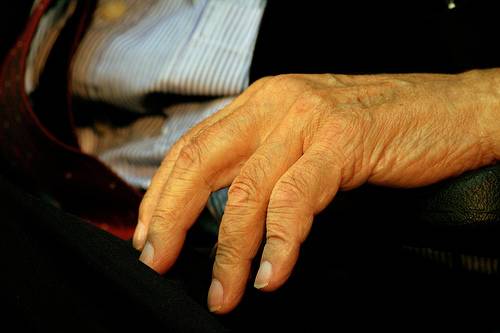You’re all shook up, trembling uncontrollably, and you want an explanation. It could be from the cold, from fright, or simply from too much caffeine. However, sometimes trembling doesn’t have such simple explanations, and you need to see your doctor for answers.
It’s time to see your doctor if you have trembling and:
- Weakness and fatigue
- Unexplained weight loss
- Bulging eyes
- Are overly active
- Feel generally warm or hot

You may be suffering from hyperthyroidism, also called thyrotoxicosis, toxic goiter, or Graves’ disease. This is a relatively common disorder caused by an overactive thyroid.
- Nausea or vomiting (especially in the morning)
- Memory problems, confusion
- Red face
- Personality changes
- Frequent intoxication
- The above symptoms may be a warning signal that you have a problem with alcohol dependence.
- Brief, recurrent periods of severe facial pain
- Red face
- Teary eye
You may have trigeminal neuralgia. Because the severe pain causes facial wincing, this condition is commonly called tic douloureux, meaning “painful twitch.”
- Stiffness
- Slowness of movement
- Speech problems
- Fatigue
- Depression
These symptoms could mean you have Parkinson’s disease.
Immediate help for Parkinson’s disease
What did Harry Truman and Adolf Hitler have in common? Besides having a profound effect on history, both these men had Parkinson’s disease.
Parkinson’s mainly affects people over the age of 40, but it can occasionally strike younger people. It is a disorder in which your brain cells, or neurons, break down. These neurons produce a chemical that helps your brain control your muscle movements. When they die, they no longer make the chemical, called dopamine, and your muscles don’t work as well.
The early symptoms of Parkinson’s disease are general and easy to overlook. At first you may simply feel tired and weak. Then you may notice that your hands tremble while at rest. This is one of the most common symptoms of Parkinson’s. Your muscles may begin to feel stiff, you may move more slowly, and you may have trouble keeping your balance. You might notice a change in your speech, or your handwriting may become much smaller.
If you think you may have Parkinson’s, see your doctor. He can prescribe medicine that will help you. The most common is Levodopa, or L-dopa, which changes to dopamine in your brain. However, L-dopa becomes less effective the longer you use it, so you should try to delay taking this medication as long as possible.